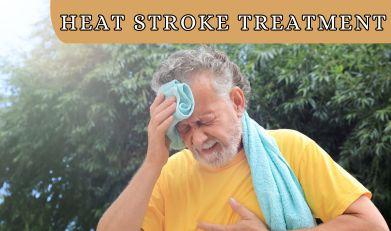As the mercury rises, so does the risk of heat-related illnesses. Among them, heat stroke stands as a severe condition demanding immediate attention. It occurs when the body overheats, unable to regulate its temperature adequately. Without prompt treatment, it can lead to serious complications, even proving fatal. Understanding the signs and necessary actions to combat heat stroke is crucial for everyone, especially during scorching temperatures.
Heat Stroke Symptoms
- High Body Temperature: A body temperature of 104°F (40°C) or higher is a key indicator.
- Altered Mental State: Confusion, agitation, slurred speech, or disorientation.
- Flushed Skin: The skin might feel hot and dry, lacking perspiration despite the heat.
- Rapid Pulse: An increased heart rate accompanies heat stroke.
- Headache or Dizziness: Persistent throbbing headache or lightheadedness.
- Nausea and Vomiting: These symptoms can also be present.
Prevention
- Stay Hydrated: Drink plenty of fluids, especially when engaging in outdoor activities.
- Avoid Excessive Heat Exposure: Limit outdoor activities during peak sun hours
- Dress Appropriately: Wear lightweight, loose-fitting clothing in hot weather.
- Take Regular Breaks: When working or exercising outdoors, take frequent breaks in shaded or cooler areas.
- Understand Medication Risks: Some medications can increase sensitivity to heat. Consult a healthcare professional regarding their impact.
To explore Kamal Madhu and its potential benefits further, you can visit the Tata1mg platform for more information.
Introduce Ayurvedic medicine Kamal Madhu for Cardiac care tonic.
Benefits:
- Controls High Blood Pressure
- Strengthens Heart Muscles
- Improves blood circulation to the heart
- Regulates the nerves and keeps the brain cool
- Beneficial to the people having weak eyesight
Conclusion
heat stroke is a serious condition. Recognize its signs—high body temperature, altered mental state, and lack of sweating—and act fast. Move to a cooler place, lower the body temperature, and seek medical help immediately. Stay hydrated, avoid excessive heat, and be prepared to help others. Stay safe in hot weather by staying informed and taking proactive steps.

